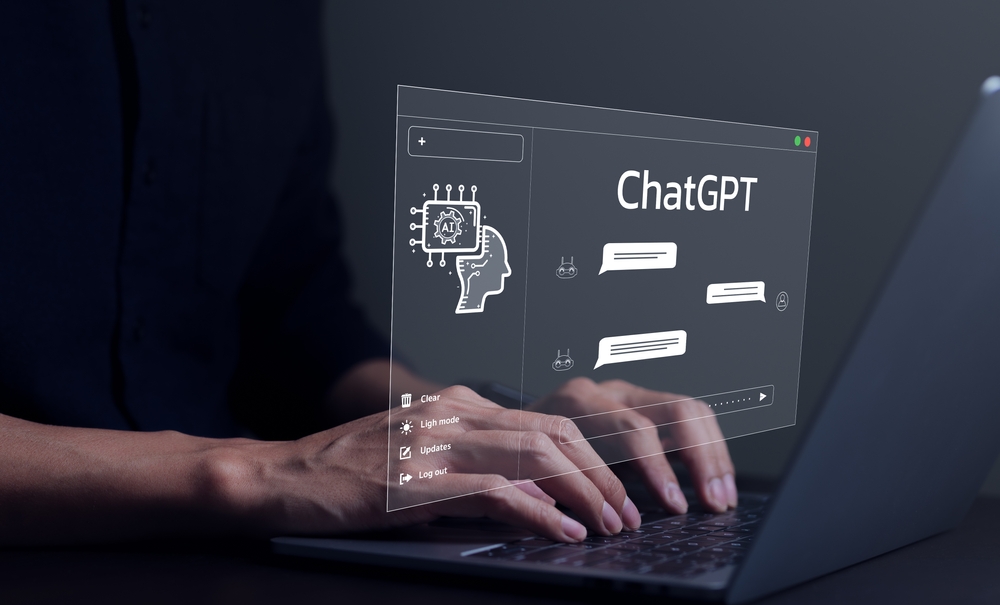The use of AI in PR and marketing brings many benefits - it automates and optimizes important processes, helps in personalization and segmentation, relieves staff, and increases the effectiveness of advertising campaigns. However, this technology is not without its drawbacks. Knowledge of its challenges and limitations is a condition for proper use of its potential without exposing oneself to image failures, legal problems or ethical doubts. We explain what to pay attention to!
What will you learn from the article?
From the article you will learn what tasks related to marketing and PR activities can be performed by AI for you, and what are the main benefits and limitations resulting from cooperation with artificial intelligence. The most important issues related to legal and ethical dilemmas were also discussed, as well as the basic principles that allow for minimizing these types of difficulties and overcoming the limitations resulting from the imperfections of some popular tools.
Why does AI work so well in PR?
The use of artificial intelligence for PR purposes can be multidimensional. AI can collect data, organize it, analyze it and draw conclusions based on it. Since these types of activities will take relatively little time for the program, reports can be generated in real time. Analytical AI skills can be useful in drawing conclusions from data collected in a CRM database or in social media, showing trends and patterns of consumer behavior.
Various tools can be helpful in tasks of varying degrees of difficulty - from research, text generation (GPT chat) or graphics editing (Midjourney Bot), through comprehensive analyzes of the brand image (Brandwatch) and target group profile, to precise identification of potentially valuable customers. (Pitchbox).
Is it worth “hiring” AI in marketing?
Artificial intelligence in marketing, thanks to the use of various tools for analyzing and generating content, can significantly improve the actions taken, determine their effectiveness and help in the comprehensive design of entire strategies. Automation of numerous processes, thanks to fast data processing, improves the efficiency of campaigns.
Conclusions drawn on the basis of huge amounts of data are objective in nature and allow us to better predict trends and reach the right customers at the right time. NLP algorithms are able to effectively determine user intentions and their moods, and content creators, thanks to greater insight into the world of recipients, have a chance to create more convincing and attention-grabbing content.

Artificial intelligence – how to use its capabilities?
The use of artificial intelligence depends primarily on the specificity of the selected tool and the needs and skills of the user. Before starting cooperation with AI, it is worth precisely defining the tasks you perform, their time-consuming and repeatability, and then gaining knowledge about what artificial intelligence can do in the area of the most time-consuming processes.
It is not worth starting the adventure with the professional use of advanced AI tools without a prior plan due to the high subscription costs. On the other hand, when using free tools such as chatbots, it is worth familiarizing yourself with their capabilities and limitations before using them professionally. Why? Mainly because AI technologies, especially those based on natural language processing (NLP), are still in a relatively early stage of development and as such are not reliable. Due to the constant and dynamic development of technology, it is worth keeping up to date with updates to the tools we use. It is also good to remain attentive to information about the mistakes they make.
Legal and ethical challenges of AI in PR
The use of artificial intelligence brings not only new opportunities, but also dilemmas. This is not surprising, because it is the first time that humanity is faced with this type of phenomenon. One of the key challenges are legal aspects and they are worth paying the most attention to. Artificial intelligence, using machine learning, is based on various information, some of which is personal data. Attention should be paid to the risk of improper management, especially in the context of GDPR regulations. 87% analytics and IT leaders agree that advances in artificial intelligence make proper data management a much higher priority than before. It requires, firstly, reliable information to recipients in this respect and respect for their privacy, and secondly, precise data security.
Another legal issue is the fact that AI products are not works under the law. Therefore, they are not subject to copyright protection, which often results in various doubts or abuses. In general, legal issues related to AI are currently quite muddy ground, requiring special vigilance. This is due to the fact that the dynamic development of this technology has left some legal loopholes. Work is underway on comprehensive and transparent regulations regarding the use of AI in PR and all other areas. However, there is still a lot to do in this regard.
What regulations must be strictly adhered to? In the European Union, the General Data Protection Regulation (GDPR), known in Poland as GDPR, is in force. In terms of copyright, you also need to familiarize yourself with local regulations and keep up to date with further changes. At the same time, you should be aware that everything that artificial intelligence can do comes down to processing numerous works created by people with unique skills and a unique view of the world.
Challenges related to content quality
AI in PR must be implemented wisely. It is worth remembering that artificial intelligence does not feel or think like a human. He doesn't sense the context, he doesn't establish relationships. She is also devoid of emotional intelligence. Additionally, it does not guarantee the correctness of the information because it does not verify the sources it uses. AI simply generates content that fits certain patterns. The phenomenon of AI hallucinations, i.e. providing false information, sources or even people, exists, so it is worth being vigilant. This is important from the point of view content marketing.
So how do you get the best results with AI? Although the content generated by AI seems to be no different from that prepared by humans, when we delve deeper into it, we can notice that it is quite "dry" and lacking in flair. They are also usually significantly removed from the individual tone of brand communication. Therefore, they require the creative work of a person who will give them the appropriate style and uniqueness.
AI in PR – remember this!
A responsible approach to artificial intelligence and compliance with certain gold standards may prove to be one of the key links in building brand image and customer trust. At the same time, they allow you to avoid unpleasant legal consequences. What is worth paying attention to?
Security and transparency
It is a good idea to develop a set of rules or policies regulating how information in the company is collected, stored and processed. Recipients should be reliably informed about how their data is obtained, processed and stored. They should also have space to express consent, withdraw it, and access and edit data. Transparency, concern for customer privacy and GDPR compliance are extremely important. Additionally, it is worth ensuring that the minimum amount of data is obtained, which reduces the risk of abuse.

The second thing is to equip the company with appropriate security systems. It is important to remember that although AI in PR is a very helpful tool, it is sometimes used with bad intentions. How? For example, by hackers who use modern technologies to improve their strategies. The use of cybersecurity measures is therefore extremely important.
Ongoing monitoring of legal regulations
It is worth following current regulations related to the use of AI. Developing clear legal and ethical standards that will protect both companies and customers is a priority today and such regulations may appear on an ongoing basis. If in doubt, it is always worth consulting a lawyer specializing in new technology law.
Caring for the quality of content
When creating marketing content based on AI, it is always worth verifying the accuracy of the information. You should also check whether the texts or graphics do not violate copyrights. Anti-plagiarism programs turn out to be valuable. It is important to remember that good content is unique, engaging, valuable from the recipient's point of view and consistent with the brand's mission and values. All this can be provided by a human who treats what AI creates as an inspiration or base for further work.
Preparing the team – AI in PR will not do itself
It is also important to educate employees about potential threats, their identification and actions in the event of undesirable situations. Ethical activity, consistent with the law and respecting customer privacy, should be the common priority of the entire team. It is worth establishing specific rules within the company, consistent with its mission and values. It is important that everyone knows what role AI should play in the company and how to use it appropriately. This is crucial if we do not want to damage the brand's reputation and face legal consequences.
Don't want to be left behind in a competitive market?
Let us lead your brand in the era of innovation!
AI has recently brought a real revolution. It has become a very useful tool that improves everyday work. However, this is only possible if it is in the hands of responsible, competent and properly prepared people. The combination of this technology with human creativity, an ethical approach that respects customer privacy, and awareness of threats and their prevention is becoming a special factor building competitive advantage today. Don't know how to use it? Entrust this task to experts from PR agencies and enjoy the results!


